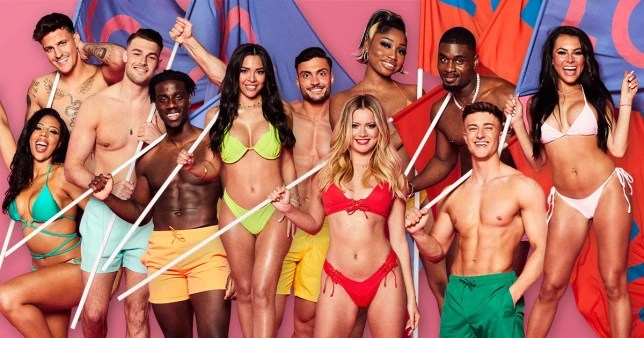Love Island, which started again last night, flirts with virtue just a little more obviously each year. The show is racially diverse, and overwhelmingly working class, despite featuring the odd medic. Hugo Hammond, who was born with a club foot, became the show’s first disabled contestant last year. The latest series features a deaf contestant, Tasha Ghouri, a ‘dancer’ with a perfect body. If the show looks more representative, don’t be deceived: there’s nothing virtuous about Love Island. But that doesn’t mean we should hold this against its beautiful, young contestants.
Despite the name, Love Island isn’t about love. It’s about money, and specifically, about how to monetise your body. This is why the ‘body diversity’ we see only goes so far; Love Island never includes people who fall outside the market parameters of the saleable physique.
The larger women have flat bellies and enormous bums and boobs; they qualify as curvy, somewhere on the Kardashian spectrum, and bankable on Instagram. For most of them, feeling sensitive about not being naturally skinny will be part of their ‘story’. But any struggles with body confidence appear to have been stamped on pretty firmly by the time they agree to tumble down slides into pools of ultra-thick jello, in bikinis, for an audience of millions.
As the new flock of Love Islanders limber up their hot bodies, they will all be chuckling on their way to the bank
Naturally, it is tempting to grumble and head-shake about the sheer physical transactionalism of Love Island and the world – a huge online edifice of influencers, promotions, sales, hustle – it represents. This temptation is particularly strong right now, amidst a season of vigorous head shaking about all the ways that modern, boob-baring sexual culture harms women.
For the new breed of ‘traditional’ feminists like Louise Perry, author of the recent polemic The Case Against the Sexual Revolution, Love Island is unlikely to make essential viewing. Perry’s book is a salvo against just the kind of advanced sexual neoliberalism that the ITV show, with its sex, hustle, bodies, and instant gratification, represents. Such sexual transactionalism, her book suggests, only benefits men; gratifying their ‘innate’ appetites and sensibilities just as they distort and insult women’s.
I look at Love Island differently. Yes, it’s artificial and openly venal. And it uses women’s bodies in an absolutely jaw-dropping way. But, as a Love Island contestant might say, ‘crack on’. Why? Because the truth is, I like to see working-class women hustling and getting rich on their own terms, however shallow and, for people like me, unsettling those terms are. I am glad that cold hard market economics, trading to some extent as they always will in human flesh and sex, has produced such a vast and dynamic reality TV industry that people working dull, often thankless jobs at home, but willing to sell aspects of themselves (something we all do to varying degrees) can get rich quick by the dozen.
I like to see the spectacle of women, for the first time in history, able to use their bodies like banks without the fear of crushing stigma or the violence that some claim is around every corner for women today. Anyone who has ever watched the likes of Millie Court, last year’s winner, or the terrifying Faye Winter, who came second with sweetheart Teddy, would find it hard to imagine these women being pushed around; one mainly sees noisy, untrammelled personality, dollar signs and the pleasures they bring. It could be worse.
The problem with proscriptive social theories about women is that their proponents think they know best; over and above the little ladies whose honour they are trying to defend. So when women cavort on screen in string bikinis and thongs for cash and fame – or participate in casual sex or hookup culture, monetise their bodies on porn sites (which the internet has made possible in the safety of one’s own home) or, more gently on Instagram – they must have been forced into it by malign patriarchal forces and dark male appetites. They can’t have chosen, in any meaningful sense, to do any of this; they are labouring under false consciousness and a world rigged against them.
Is this true? It might be. But it’s not our business one way or the other. And if we actually believe women to be capable of thought, agency, making decisions and weighing up the consequences, we have to assume they know what they’re doing, and that either it works for them, or they know if and when it doesn’t.
As the new flock of Love Islanders limber up their hot bodies, preparing to make a splash, they will all – every single one of them – be chuckling on their way to the bank. But women using their bodies to make money, in whatever form, makes people uncomfortable because we still aren’t happy with the basic transaction of sex for money. Yet in puncturing the dreadful import of bulging boobs and bums, of promiscuity, the sexual revolution in the West has done more than make it possible for women to enjoy as much sex as they want with little danger: it’s given them a way to get both rich and famous in a highly regulated, safe environment.
If Love Island seems the Faustian bargain of the century, perhaps it is; but those tut tutting at its ethics ought to remember that one woman’s fall from grace is another’s down payment on a house and a non-stop supply of champagne.







Comments